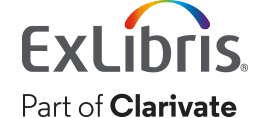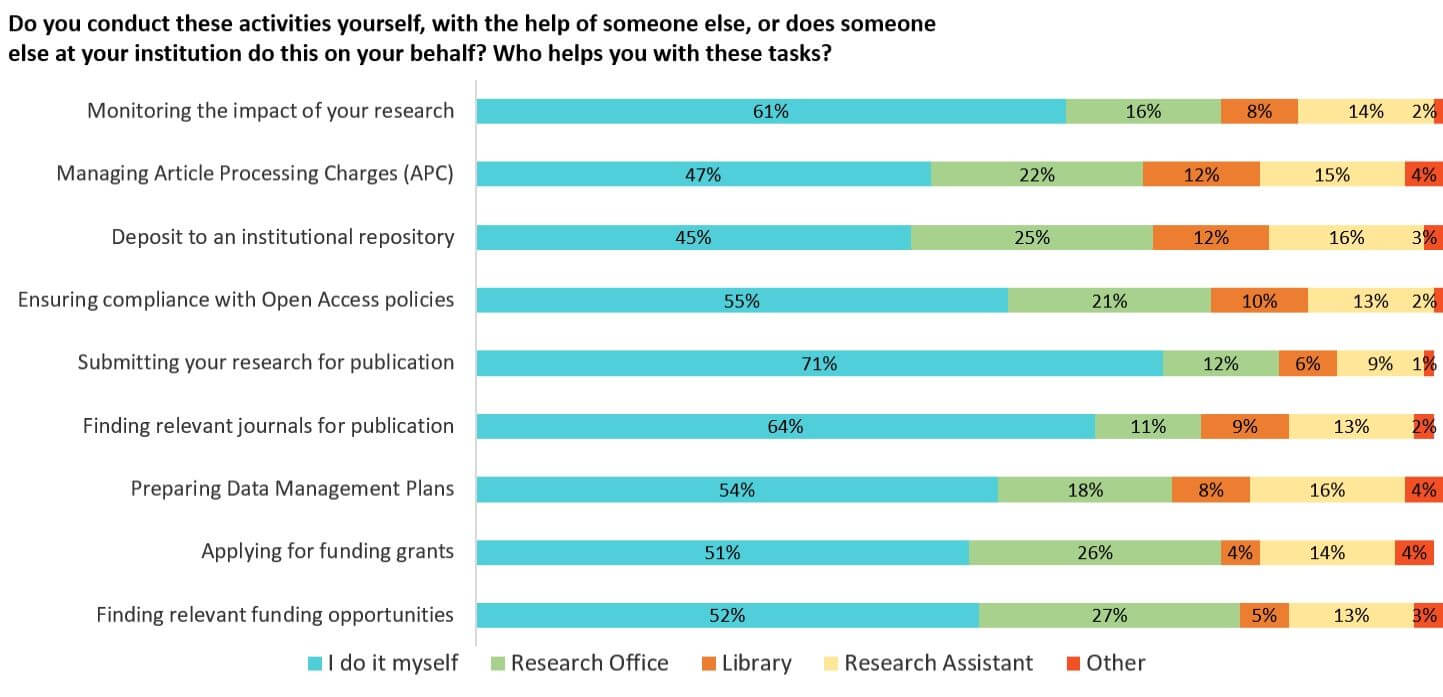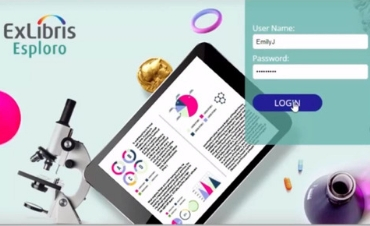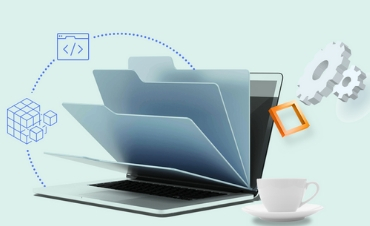Dani Guzman, Ex Libris
So far in our series on supporting academic research, we’ve looked at the latest challenges facing researchers themselves and at the opportunities for the research office to improve support for researchers. This time, we will expand our investigation to include the library and how researchers see it in the context of academic inquiry.
Data from a study commissioned by Ex Libris seems to indicate something of a disconnect between researchers’ expectations from the library and what happens in practice.

A survey of 300 researchers from the United States, the United Kingdom and Australia indicated universal agreement that libraries should be supporting the academic research process.![]()
Expectations: Libraries Should Be Doing Something (But What?)
The Ex Libris study of research challenges, a survey of 300 researchers from the United States, the United Kingdom and Australia indicated universal agreement that libraries should be supporting the academic research process. However, there was no consensus on exactly what that means.
Researchers were asked “Which of the following do you expect the library to do to support your role as a researcher?” Here’s the overall breakdown of the replies:
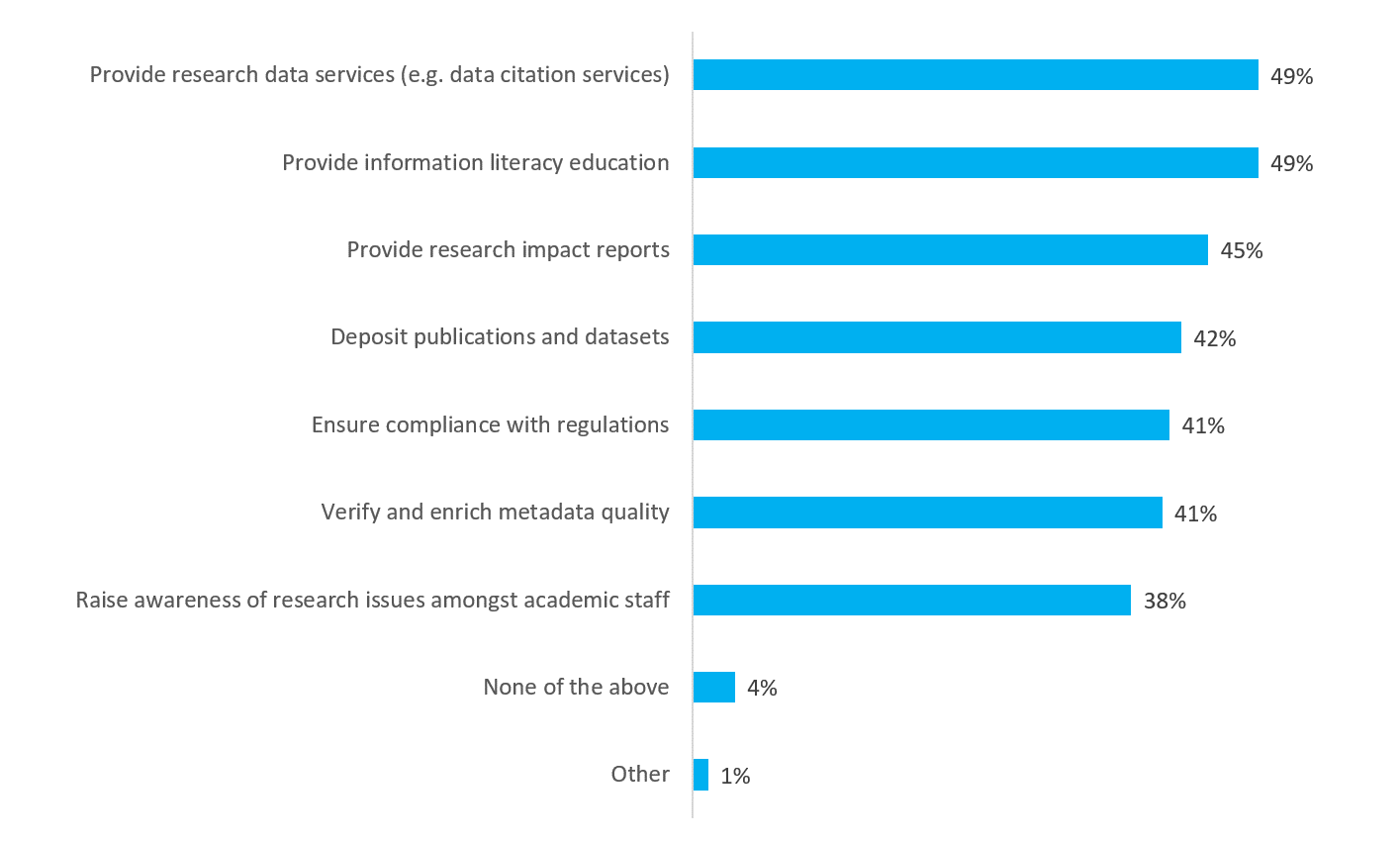
As you can see, no single support activity was selected by a majority of the respondents, yet neither was any activity (except “None” or “Other”) chosen by fewer than a third of them. Moreover, 76% of all respondents chose between two and six of the activities (just 14% chose only one), with researchers in Australia tending to have even higher expectations of the library fulfilling multiple support functions (82%).
All this would suggest that, despite a lack of clarity as to what libraries could be doing to help, all researchers think they should be doing something.
In Practice: A Wide Gap to Be Crossed
In practice, despite the stated expectations of researchers, libraries very infrequently play a role in the academic research process. The Ex Libris study also polled researchers on which parts of the process they handle independently and which not, and to whom they turn to for help. In no case did more than 12% of respondents name the library as their source of assistance.
The results for the library are:
- Managing article processing charges (APC) – 12%
- Deposit to an institutional repository – 12%
- Ensuring compliance with Open Access policies – 10%
- Finding relevant journals for publication – 9%
- Monitoring the impact of your research – 8%
- Preparing Data Management Plans – 8%
- Submitting your research for publication – 6%
- Finding relevant funding opportunities – 5%
- Applying for funding grants – 4%
As we noted in our previous posts, for each of these activities about half of the researchers polled said they handled it themselves, rather than relying on support from others. However, even among those who do get help from within their institutions, the majority turn to the research office or research assistants.
Clearly, even though it is still only involved in a minority of these cases, the library’s support is most focused on managing research publication tasks, such as managing article processing charges, finding relevant journals for publication, deposits to institutional repositories, and ensuring compliance with Open Access policies. This is in line with the type of activities researchers expect from their institutional libraries, as noted above. However, even more researchers said they expected the library to provide research data services and information literacy education.
The gap between what researchers would like to see from their libraries and the support they receive in practice is not an unbridgeable chasm. Rather, it is a tremendous opportunity that libraries are uniquely positioned to take advantage of. Libraries can play a more prominent role in the research lifecycle by offering more services and greater support for publication-related activities, essentially building on what they are already doing, and by expanding their services to include support for the research process itself.
In our next post, we will look at how the library and the research office can collaborate for optimal academic research outcomes.
In the meantime, for more details, you can read the complete Ex Libris study.
August 5, 2019


